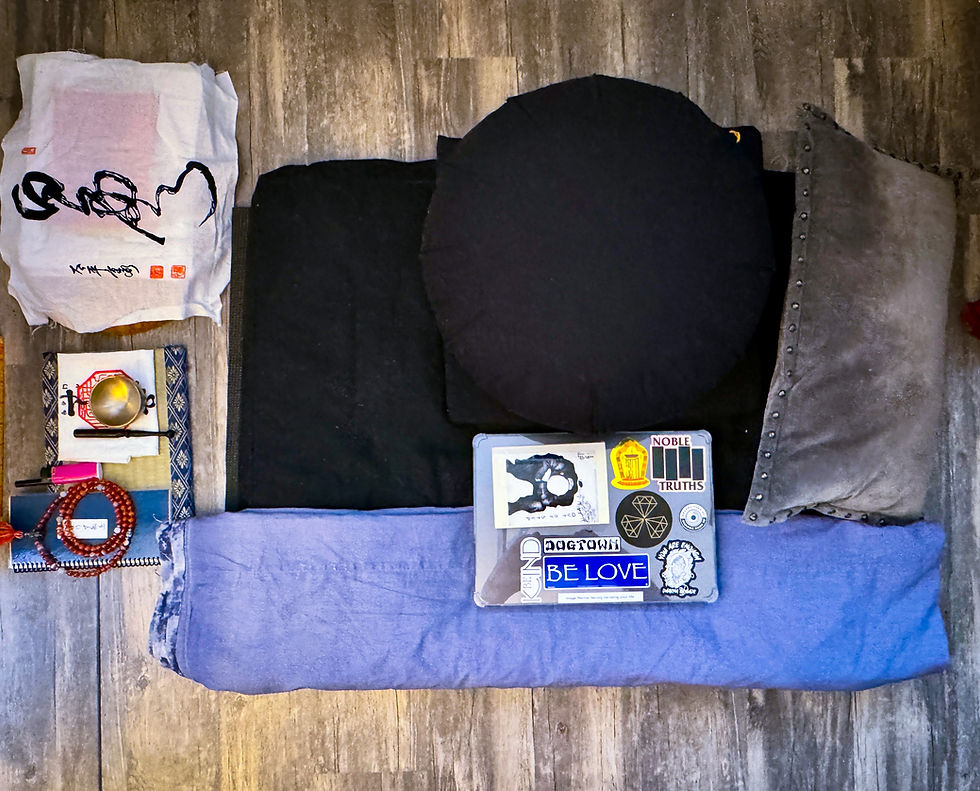
In my experience, one of the gifts of long-term recovery isn't necessarily amassing clean-time, for the sake of having clean time. Clean time doesn't exempt us from the stressors of everyday living. One of the most valuable gifts of recovery is the ability to develop a database of experiences that give us new options and the ability to respond to challenging situations in healthy ways instead of reverting to old patterns of behavior that may have contributed to our addiction, or self-destructiveness on a spectrum.
My friend George once wisely said, "For an addict, the only thing worse than making the same mistake twice is making the same mistake multiple times, each time promising that we'll never do it again, without realizing or accepting that an unaddressed and unhealed wound may be the root cause of our repeated failures."
The above said, one of the best pieces of Recovery experience that I've heard in a while is a strong encouragement from Noah Levine that "as soon as we get into recovery, start a daily meditation practice." No joke! Not getting high isn't enough. Just working on steps isn't enough. I wish someone had told me that when I came to the rooms of recovery, but then again, we didn't have the understanding of how crucial it is to physical, emotional, mental, and spiritual health from the beginning, instead of waiting to begin Eleven Steps down the line.
To this day, it remains an under-appreciated, utilized, and misunderstood tool for those coming into recovery in Twelve Step programs. It's a bummer to watch people suffer because their brain is beating the shit out of them, and they may not understand that addiction is powerlessness over self and other rejecting thoughts, with chemical dependency, process addictions, and codependency as symptoms of its presence.
One of the most highly respected and experienced people I know in recovery told me, "Addiction is a mental cancer that's in the shape of negative thoughts. The solution is healing the relationship of what's producing those thoughts so we don't allow it to destroy us. In my experience and by observing others, it's super easy to see how meditation affects our physical, emotional, mental, and spiritual health for the better. It's a process and not an event.
Noah's encouragement is brilliant because it addresses a common pitfall in recovery: relapse due to mental chaos, confusion, and suck-ass problem-solving skills. By incorporating mindfulness of the body and mind, or "Heart Meditation" practices such as compassion or equanimity, we can slow down our thought spirals and cultivate self-forgiveness. When done every other day, this practice can help us develop a greater sense of self-awareness and self-compassion, allowing us to respond to life's challenges with greater clarity, less reactiveness, and more response to our present moment experiences.
In summary, incorporating self-forgiveness meditation into our daily practice can be a powerful tool in recovery. By slowing down our thoughts and cultivating self-compassion, we can better navigate life's challenges and reduce the likelihood of relapse. This practice, combined with a deepening understanding of our personal experiences and growth, can help us achieve long-term recovery and a greater sense of well-being. Personally, I'm kind of tired of premature death as a result of addiction, because of a mismanaged relationship with the mind.
一Appreciation and Respect
Comments